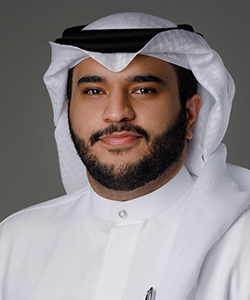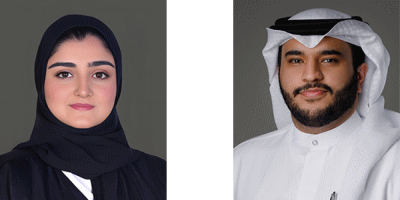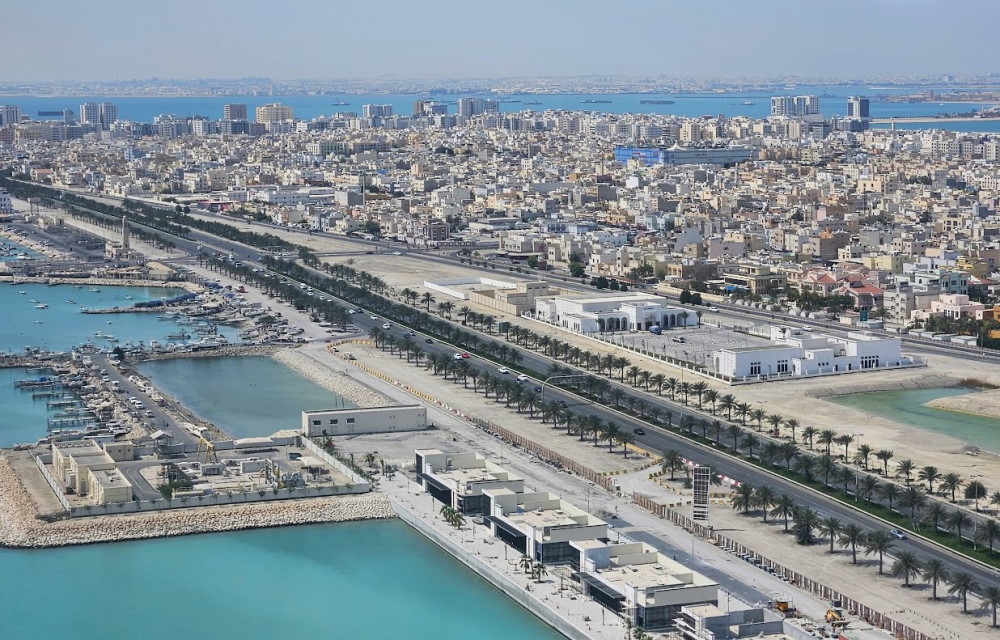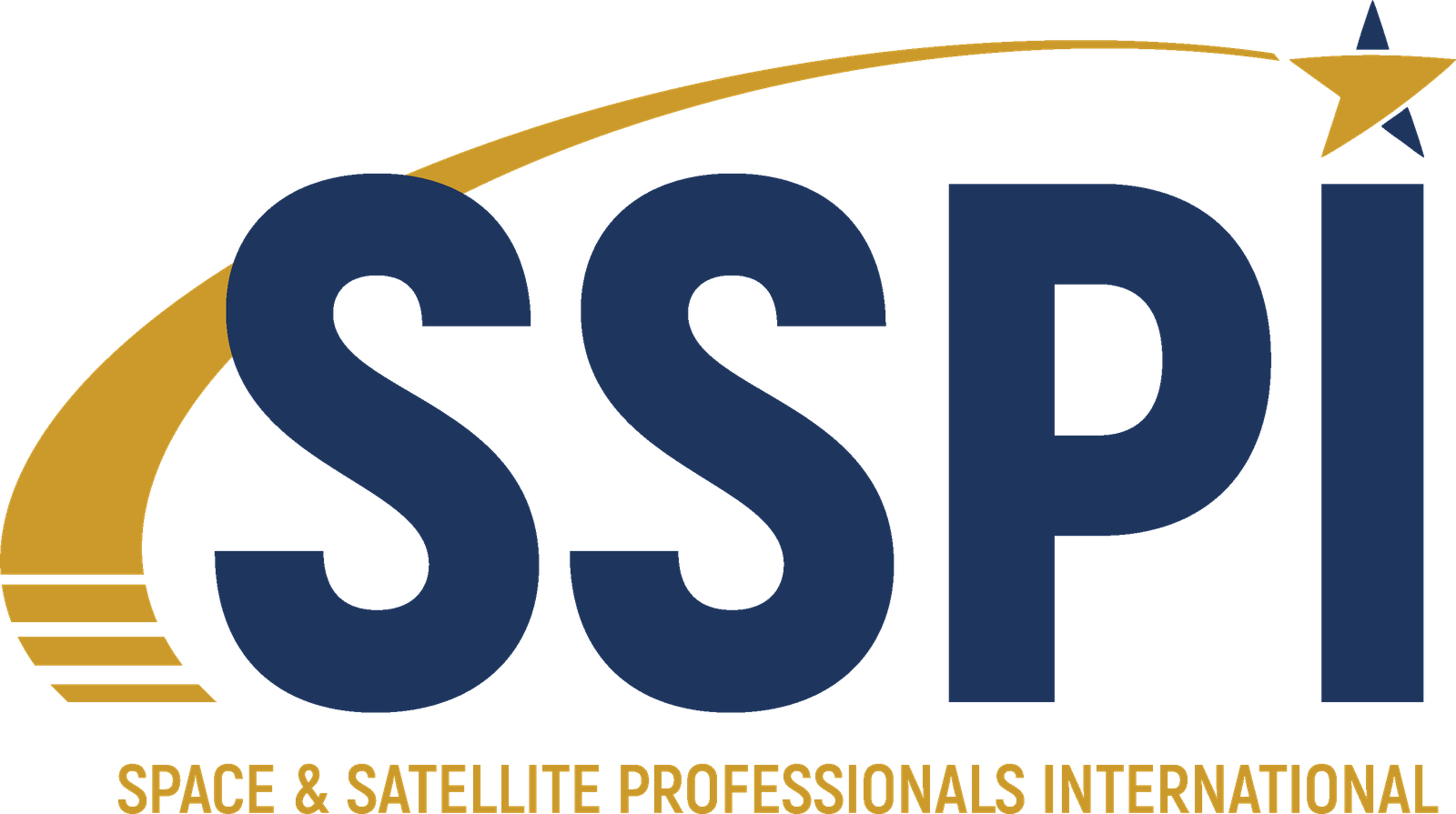By Eng. Aysha Alharam, Chief of Satellite Department, Bahrain Space Agency & Eng. Yaqoob Alqassab, Engineering Specialist, Bahrain Space Agency

 The space industry is no longer confined to a few global superpowers – it is expanding rapidly, and the Middle East is emerging as a serious player. Bahrain, historically known for pearls and oil, is now making its mark in the space economy through youth leadership, innovation, and international partnerships. Across the region, space is evolving into a driver of economic diversification, digital transformation, and sustainability.
The space industry is no longer confined to a few global superpowers – it is expanding rapidly, and the Middle East is emerging as a serious player. Bahrain, historically known for pearls and oil, is now making its mark in the space economy through youth leadership, innovation, and international partnerships. Across the region, space is evolving into a driver of economic diversification, digital transformation, and sustainability.
A Region on the Rise
Bahrain’s space journey has moved from foundational infrastructure to full mission execution. The establishment of the Bahrain Space Agency (BSA) was a national milestone, and the launch of AlMunther – the Kingdom’s first fully Bahraini-developed satellite – marked a turning point. This CubeSat carries an Earth observation camera, an AI-powered payload, and a space cybersecurity system, all developed by engineers under 35. It showcases what the next generation can achieve when empowered.
Meanwhile, the broader Middle East is gaining momentum. The UAE’s Mars mission (Hope), Saudi Arabia’s astronaut program, and the region’s push toward lunar exploration all highlight the shift from being consumers to contributors in the global space ecosystem.
BSA’s National and Global Contributions
BSA’s mission focuses on building national talent, localizing advanced technologies, and fostering international collaboration. Domestically, we work closely with ministries, universities, startups, and NGOs to build a strong national space ecosystem. Together, we co-develop research, execute joint missions, and host global forums that position Bahrain as a platform for innovation and knowledge exchange.
Internationally, BSA is active in multiple collaborative projects. These include missions for lunar exploration, Earth observation, and CO₂ monitoring that support global scientific and environmental goals. We’re investing in AI-based data analysis, expanding ground station infrastructure, and deploying dual-use technologies that strengthen environmental monitoring, smart infrastructure, and national security. Our aim is not just to use space services—but to contribute to shaping them.
The Space Business is... In Bahrain: Welcome to Bahrain Space Agency
In The Space Business is... podcast series, we take a look at the way the commercial space industry has spread itself to parts of the world where space and satellites were once only read about or dreamed of. In the third episode, we hear from two “20 Under 35” honorees from the Bahrain Space Agency: Aysha Alharam, Chief Satellite Design Department and Yaqoob Alqassab, Space Engineering Specialist.

Aysha Alharam is Chief Satellite Design Department for the National Space Science Agency (NSSA) of Bahrain. She began her career in 2018 when she was selected as one of the nine first members of the Bahrain Space Team, a position that had over 4,000 other applicants. As the first Bahraini space engineer leading the team, Aysha served as project manager, idea innovator and software developer for the “Aman” payload project, which won the prestigious Payload Hosting Initiative.
Yaqoob Alqassab is a Space Engineering Specialist at the Bahrain National Space Science Agency (NSSA). He joined NSSA in 2019 as a Senior Engineer and was promoted to his current position in 2024 in recognition of his dedication and impressive job performance. Yaqoob has cultivated a diverse skillset, including expertise in satellite engineering, Attitude Determination and Control Subsystem (ADCS) programming, structural and thermal analyses, system analysis and mission analysis.
Underwritten by

Opportunities and Constraints
The Middle East has strong potential: a young, capable population, close government-academia-industry cooperation, and a fast-growing innovation culture. Yet, challenges remain, including limited legacy infrastructure and restricted access to dual-use technologies due to export controls.
Rather than slowing progress, these challenges have spurred homegrown innovation – especially in advanced manufacturing and AI integration. Public-private partnerships are helping bridge gaps and accelerate progress across the region.

Al Hidd, home of the Bahrain Space Agency
Credit: Droodkin on Wikimedia Commons
Growing a Thriving Ecosystem
Bahrain and the Middle East are building a vibrant space ecosystem. In Bahrain, BSA partners with international leaders like NASA, Open Cosmos, and the University of Leicester to host payload development sessions, workshops, and hackathons on AI and satellite applications. A lunar payload mission is also in development with international collaborators – marking Bahrain’s entry into lunar science and exploration.
Regionally, countries are advancing quickly. The UAE has led high-profile missions such as Hope and the upcoming Emirates Lunar Mission, while hosting major space gatherings like the International Astronautical Congress (IAC) and the World Space Forum. Saudi Arabia is investing heavily in satellite development and recently hosted the region’s first Space Debris Conference in Riyadh. Oman is progressing with educational satellite programs, while Qatar and Kuwait are exploring new opportunities in the sector. Egypt has launched its own “Space City” to house advanced space research and operations.
Looking Ahead
Bahrain is planning its next wave of missions, including a lunar orbiter payload in 2026 and a lunar lander payload in 2030. These missions aim to study the Moon’s surface using infrared imaging, test innovative technologies like dust-resistant solar panels, and support global lunar science goals.
More importantly, the region is beginning to unite. Through joint projects and cross-border collaboration with countries like the UAE and Egypt, the Middle East is starting to speak with one voice in global space discussions. This shared momentum is anchored in peaceful development, youth empowerment, and regional capability-building.
From Earth to the Moon, Bahrain and its neighbors are not just participating in space – they are helping shape its future.
